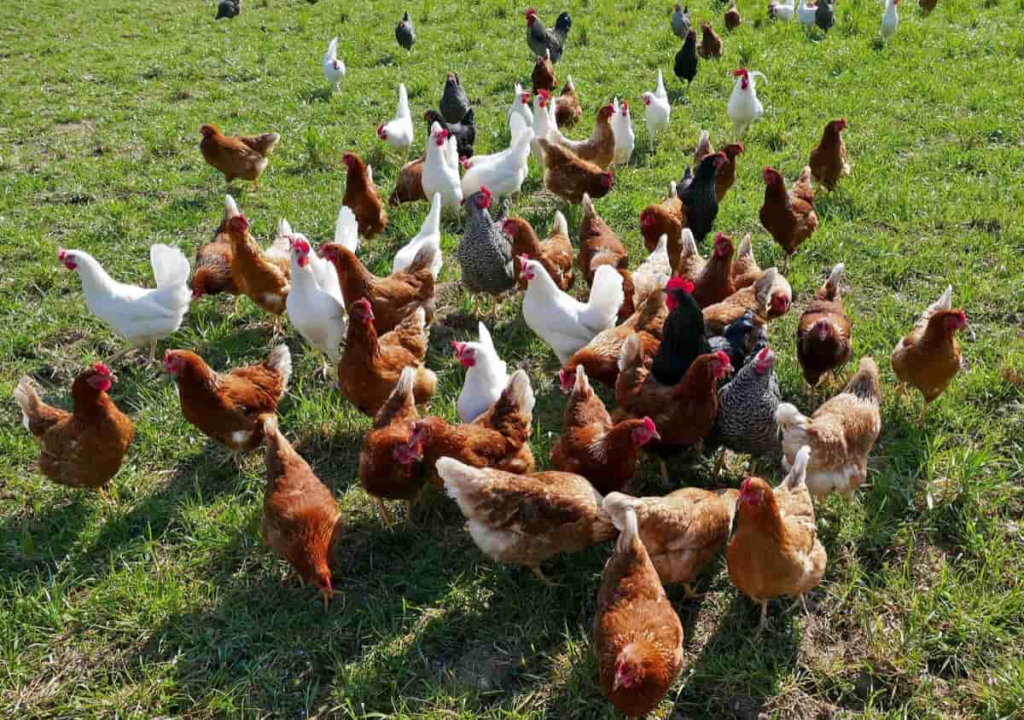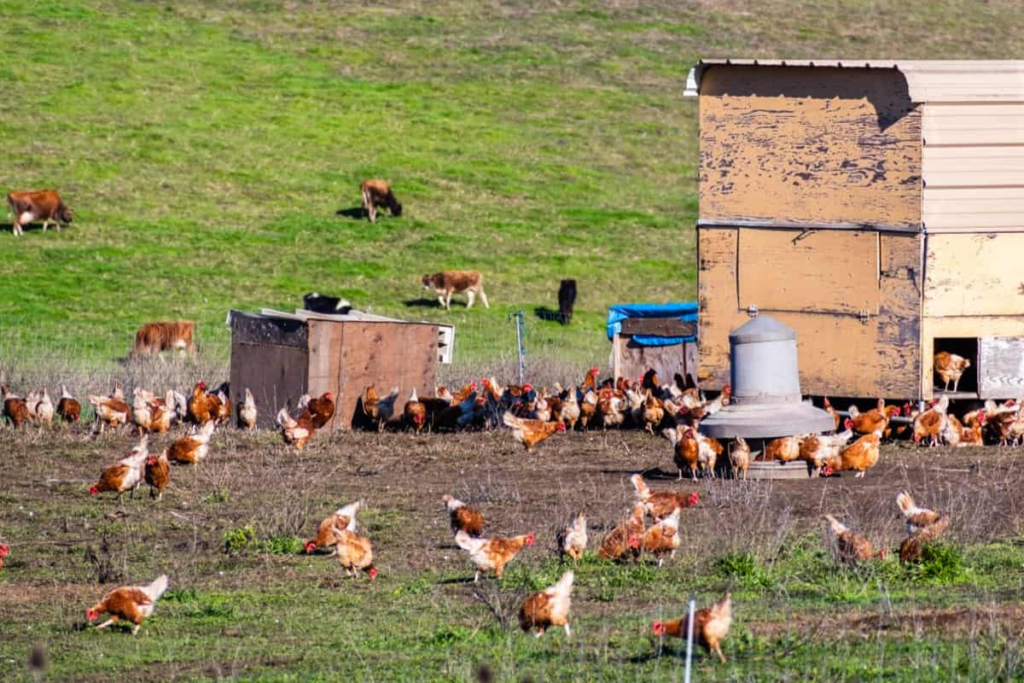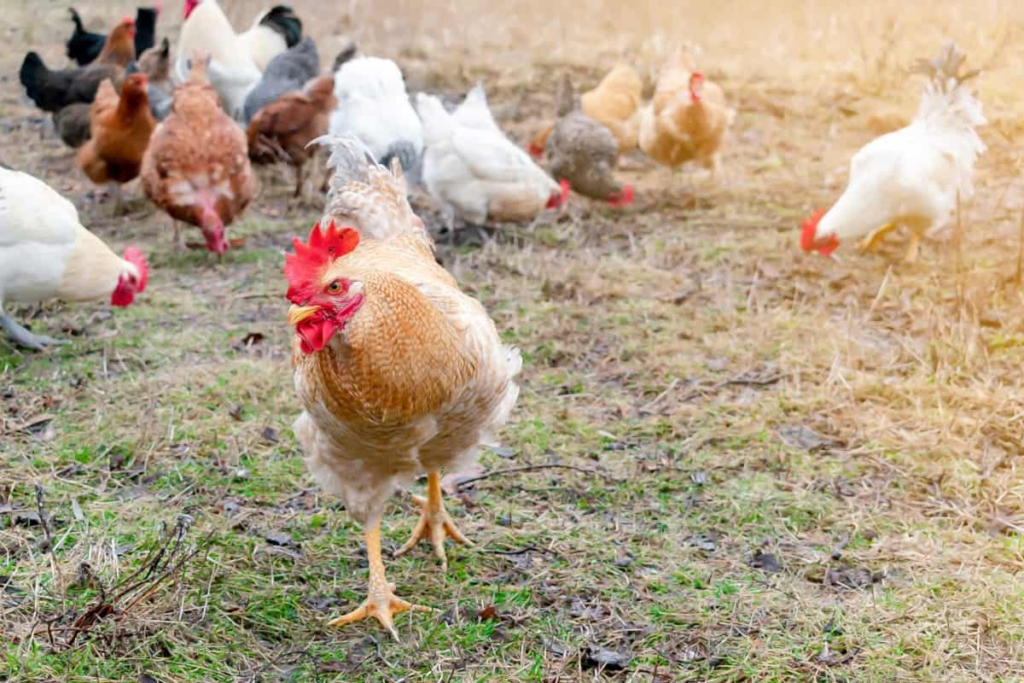Introduction:
In recent years, the global agricultural landscape has witnessed a significant shift towards sustainable practices. Poultry farming, a cornerstone of the agriculture industry, has not been immune to this transformative wave. In this article, we’ll delve into sustainable practices in poultry farming, going beyond the conventional notions of free-range. From eco-friendly husbandry to innovative feed solutions, the poultry industry is evolving to meet the demands of both consumers and the environment.
Understanding Sustainable Poultry Farming :

Sustainable poultry farming involves the responsible management of resources, prioritizing the health of both birds and the environment. It goes beyond mere profitability, aiming to create a system that is ecologically sound, economically viable, and socially responsible.
The Evolution from Free-Range to Sustainable Practices :

While free-range practices have been a positive step towards animal welfare, sustainable poultry farming takes a broader view. It encompasses ethical treatment of birds, reduced environmental impact, and the implementation of cutting-edge technologies for efficient production.
Environmentally-Friendly Infrastructure :

One key aspect of sustainable poultry farming is the construction of eco-friendly infrastructure. Farms are adopting energy-efficient systems, waste recycling, and renewable energy sources to minimize their carbon footprint.
Innovative Feed Solutions :

Sustainable practices also extend to the feed provided to poultry. Farmers are exploring alternative, environmentally friendly feed sources, reducing reliance on traditional feed that often contributes to deforestation and monoculture.
Holistic Animal Welfare :

Beyond the basics of free-range, sustainable poultry farming emphasizes holistic animal welfare. This involves providing birds with ample space, natural light, and conditions that mimic their natural habitats, promoting overall well-being.
Utilizing Technology for Efficiency :

Technology plays a pivotal role in modern agriculture, and poultry farming is no exception. Sustainable farmers are incorporating smart farming techniques, IoT devices, and data analytics to optimize production processes and minimize resource wastage.
Local and Organic Market Opportunities :

Sustainable poultry farming often intersects with the rising demand for local and organic products. Farmers are tapping into these markets, fostering community connections and contributing to the larger movement towards conscious consumerism.
The Economic Viability of Sustainable Practices :
Contrary to common misconceptions, sustainable practices in poultry farming can also be economically viable. Long-term benefits, reduced resource consumption, and access to premium markets can contribute to the financial success of sustainable farms.
Challenges and Solutions :

Acknowledging the challenges of transitioning to sustainable practices is crucial. From initial capital investments to the learning curve associated with new technologies, farmers face obstacles that require innovative solutions and industry support.
Government Initiatives and Regulations :

Government support through incentives and regulations is instrumental in encouraging sustainable practices in poultry farming. Awareness and compliance can create a level playing field, motivating more farmers to adopt eco-friendly approaches.
Conclusion:
In conclusion, sustainable poultry farming goes beyond the confines of free-range practices, embracing a holistic approach that benefits the environment, the birds, and the farmers. The journey towards sustainability involves a combination of eco-friendly infrastructure, innovative feed solutions, technological integration, and a commitment to animal welfare. As the industry navigates challenges and leverages opportunities, sustainable poultry farming emerges as a beacon of hope for a more responsible and resilient agricultural future.
FAQs :
- Are sustainable practices more expensive for poultry farmers?
Sustainable practices may require initial investments, but long-term benefits such as reduced resource consumption and access to premium markets can offset the costs. - How can small-scale poultry farmers adopt sustainable practices?
Small-scale farmers can start by implementing simple changes like using eco-friendly feed, optimizing space for birds, and exploring local and organic markets. - Do sustainable practices in poultry farming really make a difference to the environment?
Yes, sustainable practices reduce the environmental impact of poultry farming by minimizing carbon footprints, promoting biodiversity, and utilizing eco-friendly infrastructure. - What role do consumers play in promoting sustainability in poultry farming?
Consumers drive change by demanding products from farms committed to sustainable practices. Their choices influence market trends and encourage farmers to adopt eco-friendly methods. - Can sustainable poultry farming be profitable in the long run?
Yes, sustainable poultry farming can be economically viable. Farmers can tap into local and organic markets, access premium pricing, and benefit from reduced resource consumption over time.



